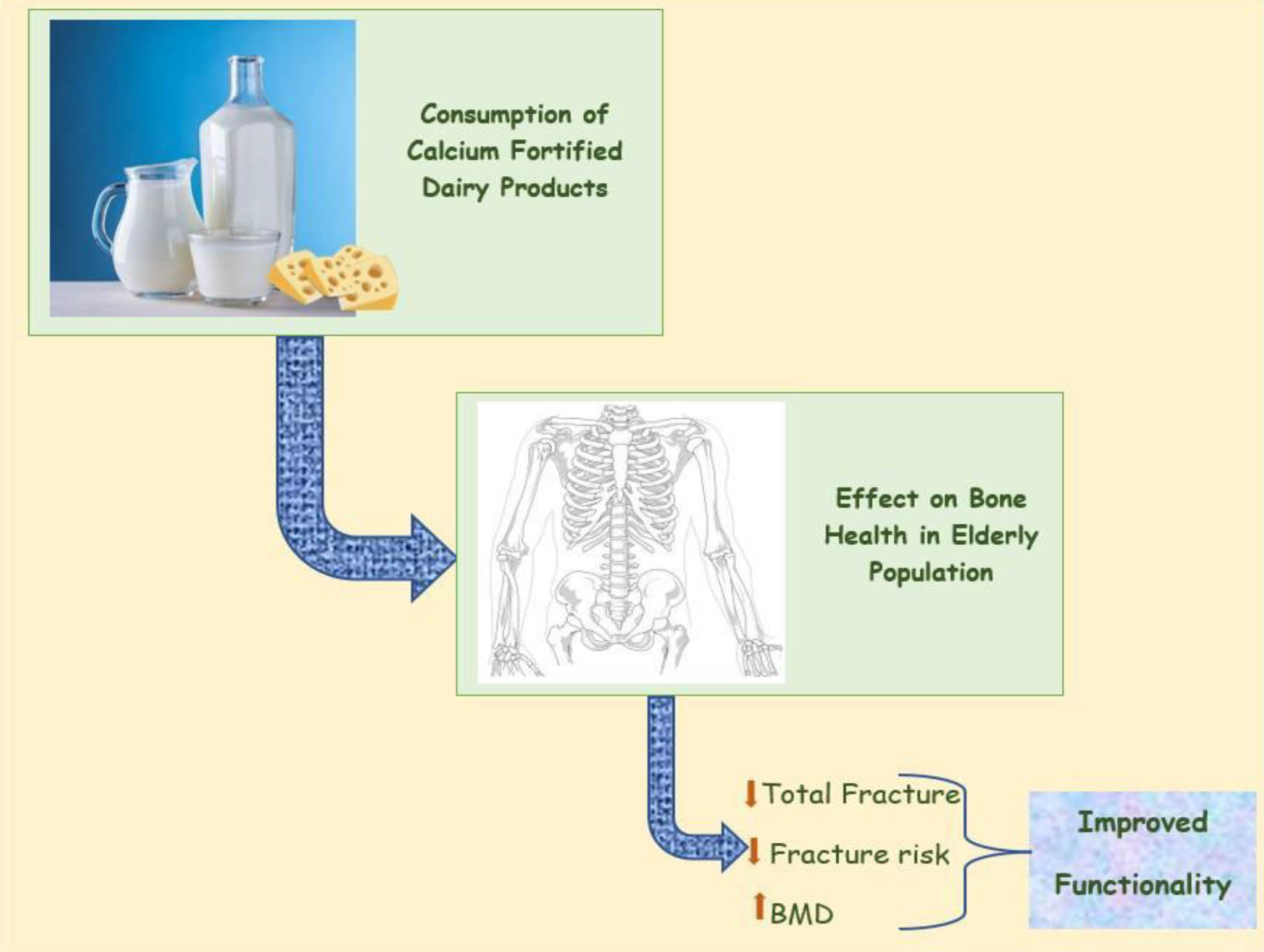A Systematic Review on Assessing the Effect of Calcium Fortified Dairy Products on Bone Mineralization and Functionality in Adults aged 65 to 80 years
DOI:
https://doi.org/10.31989/dsn.v2i1.1021Abstract
Older men and women are recommended to take at least 1000-1200 mg/day of calcium for bone health and prevention of fractures. Older adults have been encouraged to improve bone health by increasing their calcium intake through food rather than by taking supplements. The Objectives of the Study: To assess the effect of calcium-fortified dairy products on bone mineralization and functionality in adults aged 65 to 80 years. Full text, English only, publications was searched on PubMed and Google Scholar, published within 2011 to 2021. Three search terms were utilized on PubMed, the search resulted in five, five, and four studies. Out of these studies, two, one, and one study respectively, met pre-determined eligibility criteria for inclusion, which summed to four studies. On Google Scholar, the search resulted in 18,600 studies. Out of 60 studies, three studies met the pre-determined eligibility criteria. The total relevant publication summed up to seven studies.
Two studies examined the effect of increasing the RDA of calcium. Four studies examined the effect of dairy consumption on bone health. One study investigated how fermented milk product (FMP) consumption influences bone health in postmenopausal women.
Two studies shown that there was little/no evidence that increasing the RDA through dietary sources or supplements prevents fractures. Four studies shown that there was a benefit on bone mineral density with fortified dairy foods. One study suggested increase intake of yogurt reduces the risk of hip fracture in postmenopausal women.

Keywords: Dairy, Calcium, Fortified, Bone, Functionality, Older Adults.
Downloads
Published
Issue
Section
License
Any manuscripts or substantial parts of it, submitted to the journal must not be under consideration by or previously published in any other journal or citable form. Authors are required to ensure that no material submitted as part of a manuscript infringes existing copyrights or the rights of a third party. In submitting one's article in any form, the author has assigned the FFC publishing rights and has agreed to an automatic transfer of the copyright to the publisher. This is so that the FFC may create print option journals, for example, at the FFC’s discretion. If the author wishes to distribute their works by means outside of the FFC, for example within their community, they will have to place a request.
Correspondence concerning articles published in Functional Foods in Health and Disease is encouraged. While derivative works (adaptations, extensions on the current work, etc.) are allowed, distribution of the modified material is not allowed without permission from the FFC.